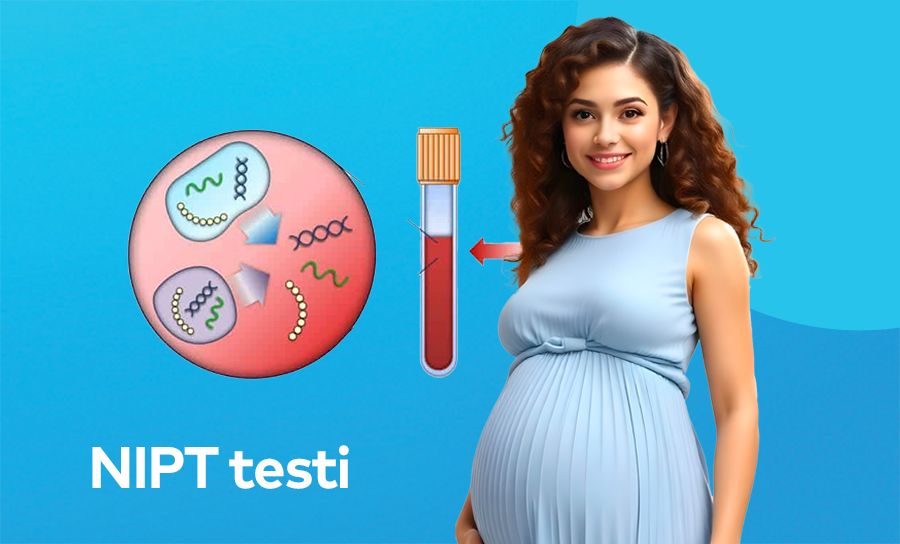During pregnancy, ensuring the healthy development of the baby is every parent’s greatest wish. One of the significant achievements of modern medicine is the NIPT test, which screens the baby’s genetic health. Unlike invasive methods, this test is safe, accurate, and can be performed at an early stage.
1. What is NIPT?
- NIPT (Non-invasive Prenatal Testing)- is a simple test taken from the mother's blood to check the genetic health of the unborn baby. It specifically detects chromosomal disorders such as Down syndrome, Edwards syndrome, and Patau syndrome early.
2. When is the NIPT test performed?
- This test, which checks the genetic health of the baby, can be performed from the 9th–10th week of pregnancy.
3. How is the test performed?
- Only a blood sample is taken from the mother. It is painless and non-invasive - completely safe for both mother and baby.
4. How accurate is it?
- It is >99% accurate, especially for Down syndrome. However, this is a screening test. A positive result is not a diagnosis and further testing may be required.
5. Who is it recommended for?
It can be recommended for any pregnant woman, but it is more recommended for those in the following groups:
- Women over 35 years of age;
- Those who experienced a genetic problem in a previous pregnancy;
- Those with risks detected in an ultrasound;
- Those who are at risk of a genetic disease.
6. Can the baby’s sex also be determined?
- Yes, the test results determine the baby's sex's.
7. Which diseases are screened for?
Mainly for these genetic disorders:
- Down syndrome (Trisomy 21)
- Edwards syndrome (Trisomy 18)
- Patau syndrome (Trisomy 13) risk percentage is calculated.
- Attention is also given to other chromosomal pathologies, including deletions (loss of a chromosome segment) and duplications (repetition or doubling of a chromosome segment).
8. When will the results be available?
- Test results are usually ready within 10 (15-20 days if sent to external laboratories) business days.
9. What does a negative result mean?
- This indicates that the likelihood of a serious genetic disorder in the baby is very low. However, it is not a guarantee. The result does not mean “no risk,” but rather “risk is very low.”
10. What should be done if the result is positive?
- If the result is positive, it is not a diagnosis. Genetic counseling and additional testing (e.g., amniocentesis) are recommended.
11. Is an ultrasound (USG) examination necessary before the test?
It is not absolutely necessary, but it is recommended to clarify the following cases:
- To determine the gestational age and viability of the pregnancy
- To see if there is a twin pregnancy
- To assess the early condition of the fetus
- To check the genetic health of the baby in the laboratory
The “Saglam Aile” Medical Center offers parents the opportunity to check their child’s genetic health through its laboratory equipped with modern technology. Here, the NIPT test is conducted in accordance with international standards, and results can also be accessed online, providing parents with both convenience and time savings.
You can contact us via WhatsApp at (+994 55) 400 09 10 or through our Call Center at (012) 910 to get detailed information about the NIPT test.
